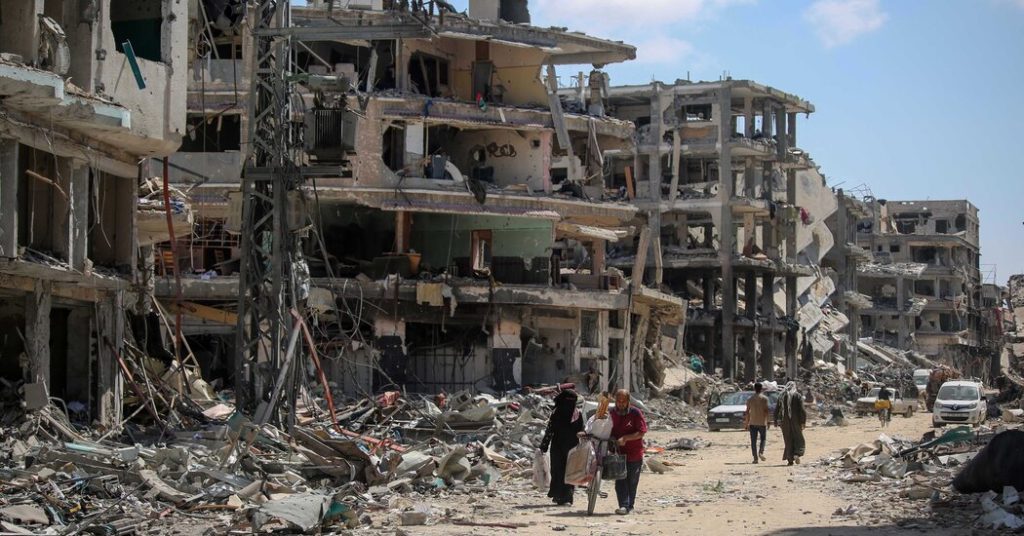The recent exchange between Israel and Iran has sparked concerns about what it means for the ongoing war in Gaza. The Iranian attack was seen as retaliation for an Israeli strike in Damascus that killed several Iranian officials. However, opinions are divided on whether a direct confrontation with Iran would impact the conflict in Gaza. Some believe that a major counterattack against Iran could shift Israel’s focus away from Gaza, while others think the Gaza campaign would remain unaffected.
The possibility of a multifront war involving Israel and Iran could complicate the situation in Gaza, particularly if Israel responds with substantial force to the Iranian attack. Israeli officials have indicated their intention to invade Rafah, despite international pressure to reconsider. A large-scale confrontation with Iran might bring the war in Gaza to a close, but it would likely require a broader cease-fire involving multiple parties. General Brom suggested that an escalation followed by a comprehensive cease-fire could lead to the cessation of hostilities between Iran-backed militant groups and Israel.
While some experts see a connection between the Iranian attack and the war in Gaza, others believe that the resources needed to combat Iran are different from those required for the conflict with Hamas. Israeli military intelligence officials have affirmed that the army has the capacity to confront both Iran and Hamas simultaneously. The success of the coalition that repelled the Iranian attack has potential implications for Israel’s international standing and could influence decisions regarding the war in Gaza.
Despite broad U.S. support for Israel in the conflict with Hamas, there have been warnings against a major ground assault in Rafah due to the escalating death toll. The United States’ assistance in intercepting Iranian drones and missiles may give it more leverage over Israel. This support could be used to encourage Israel to seek a solution to the conflict in Gaza and other skirmishes involving Hezbollah in Lebanon. However, there are doubts about whether Prime Minister Netanyahu is inclined to pursue a path that prioritizes ending the conflict in Gaza over achieving ‘total victory.’
The intersection of tensions in Gaza with the broader regional dynamics involving Iran and its proxies has raised questions about the potential outcomes and strategies for all parties involved. As the situation continues to evolve, the decisions made by Israel and its allies will have significant implications for the ongoing conflicts in the region. The complex interplay of diplomatic, military, and humanitarian concerns adds to the uncertainty surrounding the future of the war in Gaza and the broader Middle East.


